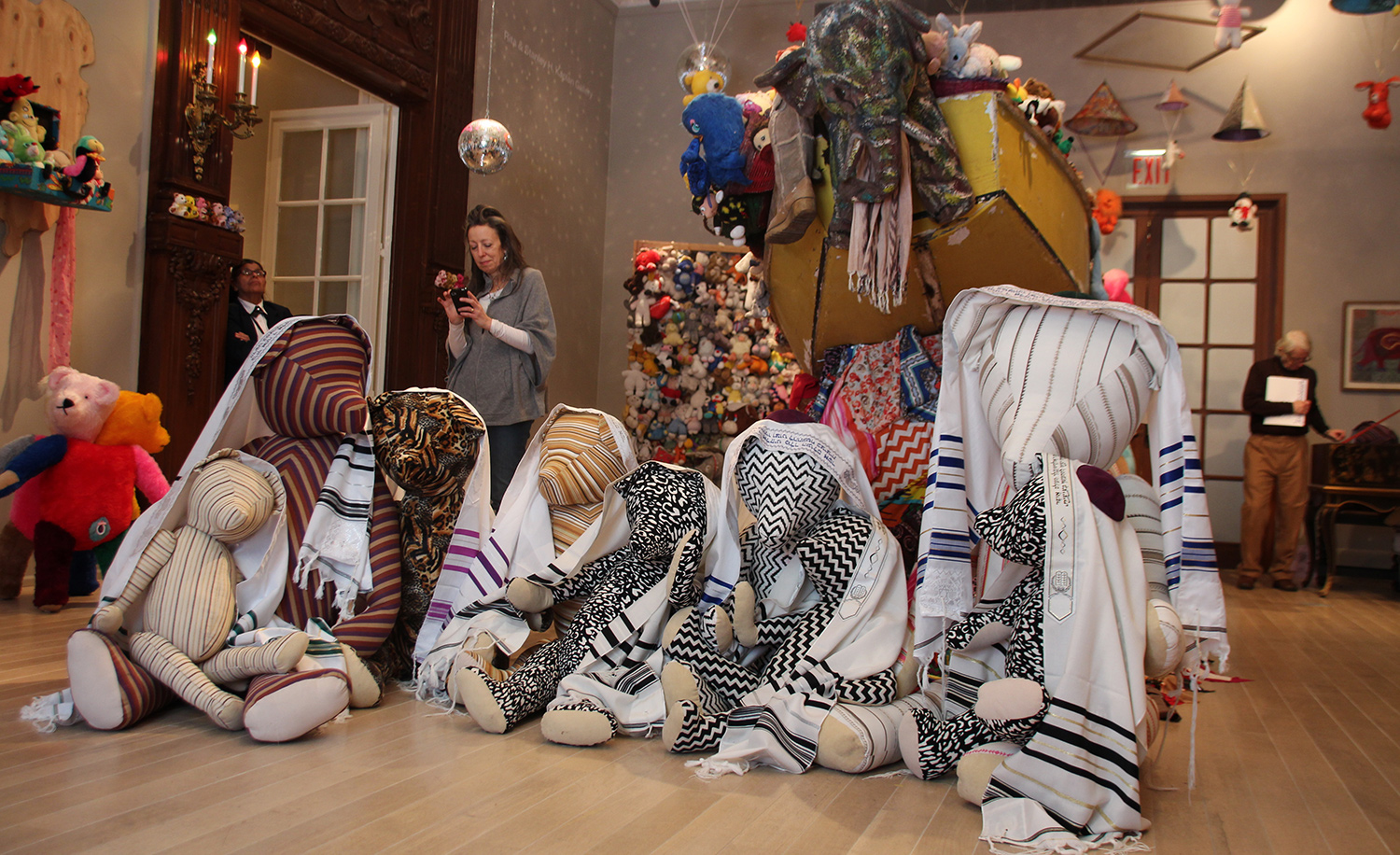
A view of an exhibition called “Charlemagne Palestine’s Bear Mitzvah in Meshugaland” at the Jewish Museum in New York in 2017. Christina Horsten/picture alliance via Getty Images.
This Week’s Guest: Menachem Wecker
When New York’s Jewish Museum opened to the public in 1947, the eminent scholar Louis Finkelstein told the New York Times that its collection of artifacts would honor and celebrate “the singular beauty of Jewish life, as ordained in the laws of Moses, developed in the Talmud, and embellished in tradition.” Though the museum grew and changed over the decades, its commitment to this fundamentally Jewish—even religious—mission never completely disappeared from view.
But the museum’s new permanent exhibition—titled Scenes from the Collection—couldn’t be farther from realizing Finkelstein’s ambition, as Menachem Wecker has demonstrated in Mosaic’s May Essay. Filled largely with kitsch, nostalgic and otherwise, the exhibition does little more than flatter the shallowest of contemporary cultural attitudes toward Jews and Judaism.
This week, Wecker joins the Tikvah Podcast at Mosaic to discuss the ideas in his essay. He reflects on Finkelstein’s hopes for the Jewish Museum, reminds us what a great exhibition can accomplish, and shows why Scenes from the Collection signals the wreck of a great Jewish institution.
Musical selections in this podcast are drawn from the Quintet for Clarinet and Strings, op. 31a, composed by Paul Ben-Haim and performed by the ARC Ensemble, as well as “Shining Through the Rain” by Big Score Audio.
Listen via iTunes Podcasts | Google Play | Stitcher | Spotify
Background
Every Thursday, the Tikvah Podcast at Mosaic will bring to to your car/earbuds/home stereo/Alexa the latest in our efforts to advance Jewish thought. For more on the new podcast, check out our inaugural post here.
A final note: If you would like to share your thoughts on the podcast, ideas for future guests and topics, or any other form of feedback, just send us an email at [email protected]. We’re grateful for your support, and we look forward to a new year of great conversations on Jewish essays and ideas.
